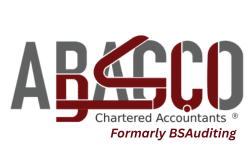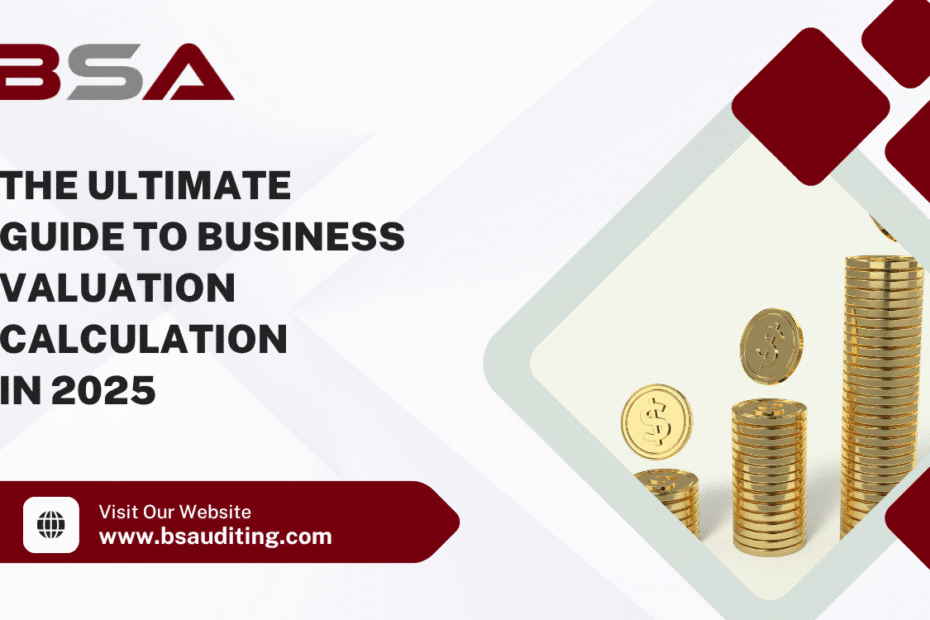Smaller businesses often have less formal documentation that relies more on the owners, and is more dependent on less predictable cash flow. Larger companies, on the other hand, have more predictable cash flow and self-sufficient documentation. All the above increases value of the business. When valuing smaller businesses, documentation regarding cash flow will be incorporated as informal and more predictable. It will reflect a value that is lower than the business’ worth.
Business Valuation Methods:
When it comes to the calculation for business valuation, no single method fits all situations. Business valuation professionals often choose from three main categories:
| Valuation Method | Description | Best Suited For |
| Income-Based Approach | Projects future earnings and discounts them to present value | Profitable businesses with growth |
| Market-Based Approach | Uses data from comparable business sales | Companies in active, established markets |
| Asset-Based Approach | Focuses on the fair market value of assets minus liabilities | Asset-heavy or unprofitable businesses |
Because of cash flow that is not as easy to estimate, smaller businesses will often have less formal, more owner dependent, and more informal documentation. With larger companies, more predictable cash flow and more self-sufficient documentation are the norms. All the above increases the value of the business. For smaller business valuation, the less predictable and informal cash documentation, owner dependence, and informal documentation will be incorporated.
How to Value a Small Business
Given their less predictable cash flow, smaller companies will typically have less formal documentation, more owner dependence, and more informal documentation. In contrast, larger companies typically have more predictable cash flow and more self-sufficient documentation. These factors all positively enhance the business value. The valuation of a smaller business will incorporate the less predictable and informal cash flow documentation, owner dependence, and informal documentation.
Important considerations include:
- Owner involvement: If the business heavily relies on the owner for operations, its value may decrease due to transferability risks.
- Revenue diversity: Businesses with one or two large clients are seen as riskier.
- Market competition: The presence (or lack) of direct competitors can influence value.
Here’s a breakdown of small business valuation considerations:
| Factor | How It Impacts Valuation |
| Strong local reputation | Adds qualitative value, especially for service businesses |
| Customer concentration | Can reduce value due to revenue dependency |
| Repeatable revenue model | Increases perceived stability and long-term potential |
| Owner’s salary | Needs to be adjusted in EBITDA or cash flow calculations |
When assessing how to value a small business, a hybrid approach using cash flow analysis and comparable sales often gives the most accurate picture.
EBITDA Valuation
The EBITDA method of valuation is frequently used in estimating
the value of a company, particularly for companies with steady revenue and well-maintained accounts.
EBITDA stands for Earnings Before Interest, Taxes, Depreciation, and Amortization. EBITDA measures a company’s operational performance and shows a company’s earnings without considering its overhead costs and accounting peculiarities, thus providing a clearer view of profitability.
To value a business using EBITDA:
Value = EBITDA × Industry Multiple
When performing the calculation for business valuation, professionals often use adjusted EBITDA to reflect normalized earnings, adding back non-recurring expenses or owner-specific compensation.
Discounted Cash Flow Analysis
Discounted cash flow (DCF) analysis values a business by calculating the present worth of the business’s future cash flows. This methodology helps particularly in assessing businesses with growth projections or companies with uneven historical earnings.
Basic DCF Formula:
DCF = CF1 / (1 + r)^1 + CF2 / (1 + r)^2 + … + CFn / (1 + r)^n
Where:
- CF = Expected cash flows for each future year
- r = Discount rate (typically reflects risk or cost of capital)
- n = Number of years in the forecast period
This approach helps assess whether the present value of anticipated earnings justifies an investment, especially when future profitability is a key consideration.
Market-Based Valuation
To determine the value of your business, you can look at the value of similar businesses that have been sold. This method requires business sale transactions to be certain that fair value is shown.
The approach usually considers,
- Revenue multiples
- EBITDA multiples
- Industry averages
- Geographic market trends
Using transaction data and industry benchmarks, valuation professionals can calculate an estimated market value. This approach works best in industries with a lot of easy-to-find transactions.
Final Thoughts
Determining the value of your business in 2025 is far more complex than applying a single formula. In order to do so, you would need to understand your business’s financials in detail, the condition of your industry, the growth prospects, and the spending behavior of prospective customers.
Approaching business valuation from various perspectives, including EBITDA valuation methods, discounted cash flow, and/or even market-based valuation enhances the accuracy of the valuation. Beginners trying to value a small business can start with normalized earnings, then asset value, and lastly market comparable to get the valuation.
Every business and business valuation has a story. It is your job to communicate that story.
FAQs on Calculation for Business Valuation
- What is the most reliable method for calculating business valuations?
As business entities grow, discounted cash flow analyses starts to become the most appropriate. Contrary to mature businesses, concerns focused on the valuation of EBITDA and approaches based on the market tend to take more of a focus.
- How to value a small business without documents?
In the case of absent traditional information, an industry comparable or an asset-based valuation may still provide some assistance. For a more precise estimation, the services of a business broker would be the best option.
- What is the EBITDA multiple for valuation in the year 2025?
This is dependent on the industry you are in. For example, digital agencies could expect 3-5x multiples whereas high-growth SaaS companies may be above 6-10x multiples.
- Why is the calculation business valuation important in the selling process?
sellers and buyers come together in a win-win situation. the buyer needs a value of what he is spending and the seller wishes for equitable value in return. appropriate business valuation inspires trust on both ends of the deal.
- Do you do it yourself or go for a professional valuation?
It is possible to estimate value yourself, but professional valuations are more credible.
This is crucial to have when you plan to sell, merge, or get new investors.


